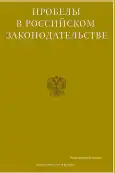Freedom as a Philosophical-Legal and Political Category: History of the Question
- Authors: Zubov V.V.1
-
Affiliations:
- Financial University
- Issue: Vol 15, No 3 (2022)
- Pages: 124-133
- Section: Articles
- URL: https://journals.rcsi.science/2072-3164/article/view/147488
- ID: 147488
Cite item
Abstract
Based on comparative-historical and analytical methods, the publication presented to the reader's attention attempts to describe and comprehend the path of formation and change of the category "freedom" in philosophical, legal and political thought. Consistently solving the following tasks (characterization of freedom by ancient authors, consideration of the category of "freedom" from the point of view of thinkers of the New Age, appeal to the understanding of freedom by the French Enlightenment, analysis of the definition of freedom by German philosophers - Hegel, Marx and Engels, establishing the place of the category "freedom" in works of followers of the liberal trend), the author is guided by the principle of historicism, according to which the assessment of a particular period is carried out on the basis of the existing context and previous stages of development, and not subsequent ones. It is noted that the concept of "freedom" has undergone a significant conceptual evolution over time. The evolutionary character is expressed in the acquisition of both humanistic and essential, deep content. The humanistic component of freedom consists in recognizing the latter as the highest value, the essential one in establishing reasonable limits for the realization of freedom in society. At the same time, the evolutionary process is not recognized as linear, consistent, since the periods of contribution to the doctrine of freedom were often replaced by stagnation, which is proved by the author on the basis of an appeal to the reception of Holbach's views by Engels, as well as the transfer of components of freedom from the philosophy of Rousseau to the philosophy of libertarianism. As a result, the author comes to the conclusion that freedom now occupies a significant place in the axiological system of any developed society, which shows the enduring importance of this category for the human community.
Full Text
##article.viewOnOriginalSite##About the authors
Vadim Vladislavovich Zubov
Financial University
Email: zubov305@yandex.ru
Cand.Sci.(History), Associate professor, Department of political science Moscow, Russia
References
- Berlin I. Philosophy of Freedom. Europe. M.: New Literary Review, 2014. 448 p.
- Bose D. Libertarianism: history, principles, politics. M.; Chelyabinsk, Socium, 2014. 408 p.
- Hegel G. V. F. The science of logic. In three volumes. Volume 3. M.: «Thought», 1972. 371 p.
- Hegel G. V. F. Phenomenology of the spirit. M.: Academic project, 2014. 494 p.
- Hobbes T. Leviathan. M.: RIPOLL classic, 2016. 672 p.
- Golbach P. A. The system of nature, or On the laws of the physical world and the spiritual world. Moscow: State Publishing House, 1924. 578 p.
- Lametri J. O. Essays. M.: «Thought», 1974. 551 p.
- Locke J. Essays in three volumes. Volume 3. Moscow: Publishing house «Thought», 1988. 668 p.
- Marx K., Engels F. Essays. Second edition. Volume 4. Moscow: State Publishing House of Political Literature, 1955. 616 p.
- Marx K., Engels F. Essays. Second edition. Volume 20. Moscow: State Publishing House of Political Literature, 1961. 828 p.
- Martyshin O. I. History of political and legal doctrines. Moscow: Prospect, 2016. 800 p.
- Mill J. St. On civil freedom. M.: Book house «LIBROCOM», 2012. 240 p.
- Narsky I. S. Western European philosophy of the XVII century. M.: «Higher school», 1974. 379 p.
- Narsky I. S. Western European philosophy of the XVIII century. M.: «Higher School», 1973. 302 p.
- Narsky I. S. Western European philosophy of the XIX century. M.: «Higher school», 1976. 584 p.
- Russell B. History of Western European philosophy. Moscow: AST, 2010. 831 p.
- Rousseau J.-J. Political essays. St. Petersburg: LLC "Rostock Publishing House", 2013. 640 p.
- Savelyev S. V. Cerebral sorting. M.: Vedi, 2018. 256 p.
- Skirbekk G., Gilye N. History of Philosophy. Moscow: VLADOS Humanitarian Publishing Center, 2008. 799 p.
- Sokolov V. V. Historical introduction to philosophy. Moscow: Academic Project, 2004. 912 p.
- Spinoza B. Political treatise. Moscow: Yurayt Publishing House, 2022. 110 p.
- Sedykh N. N. Limits of power in the concept of "sovereign" by Thomas Hobbes // Education and law. 2019.№ 4. pp. 239-243.
Supplementary files








